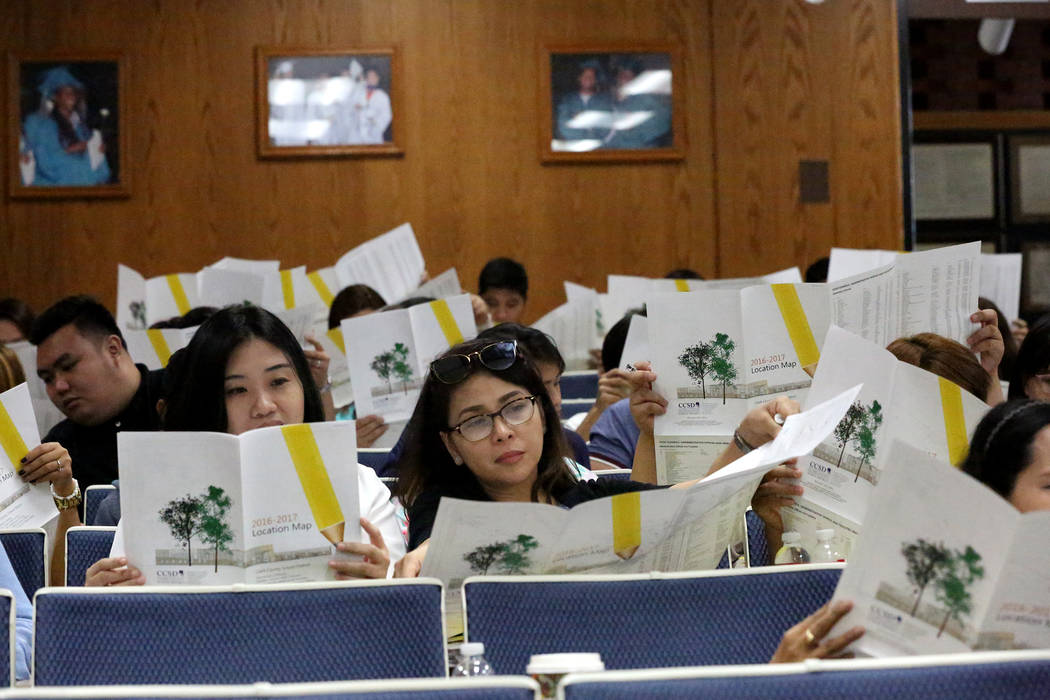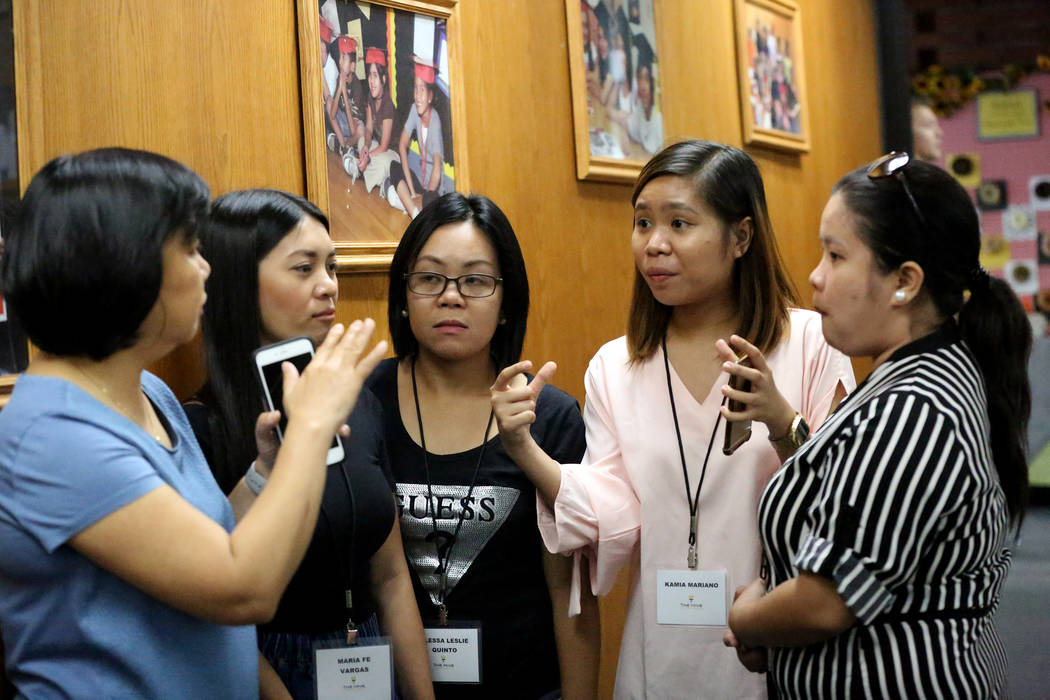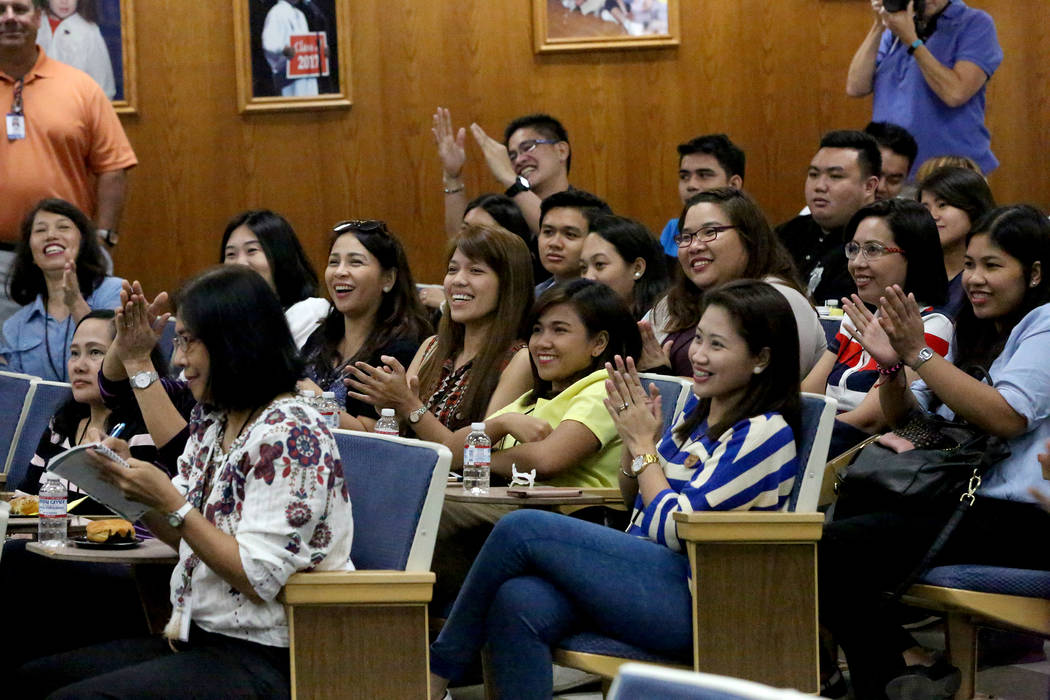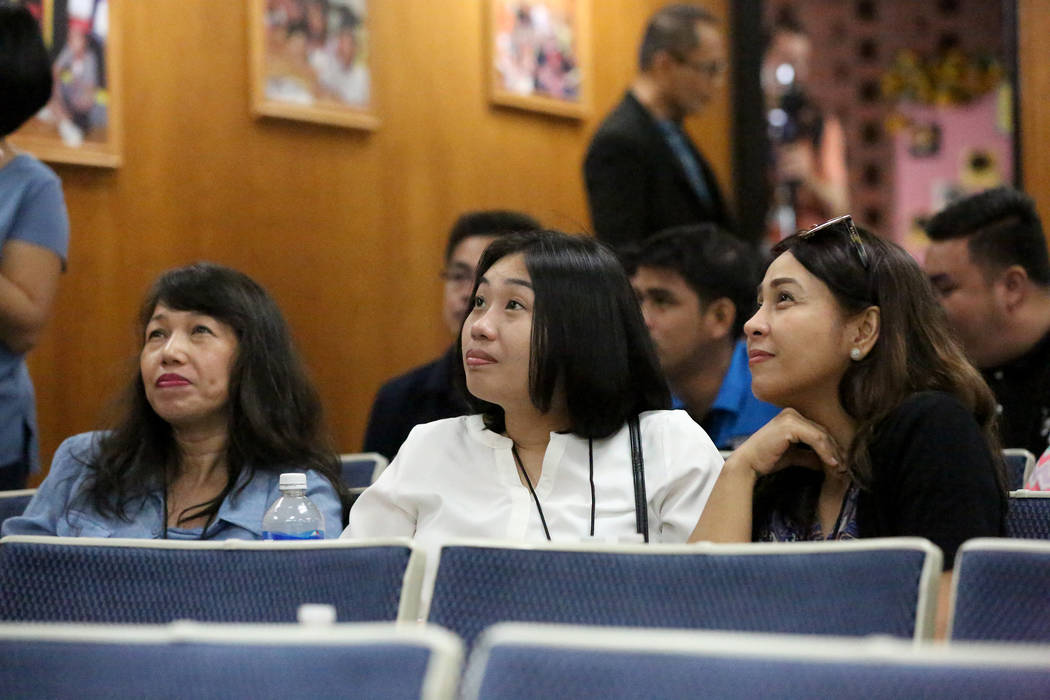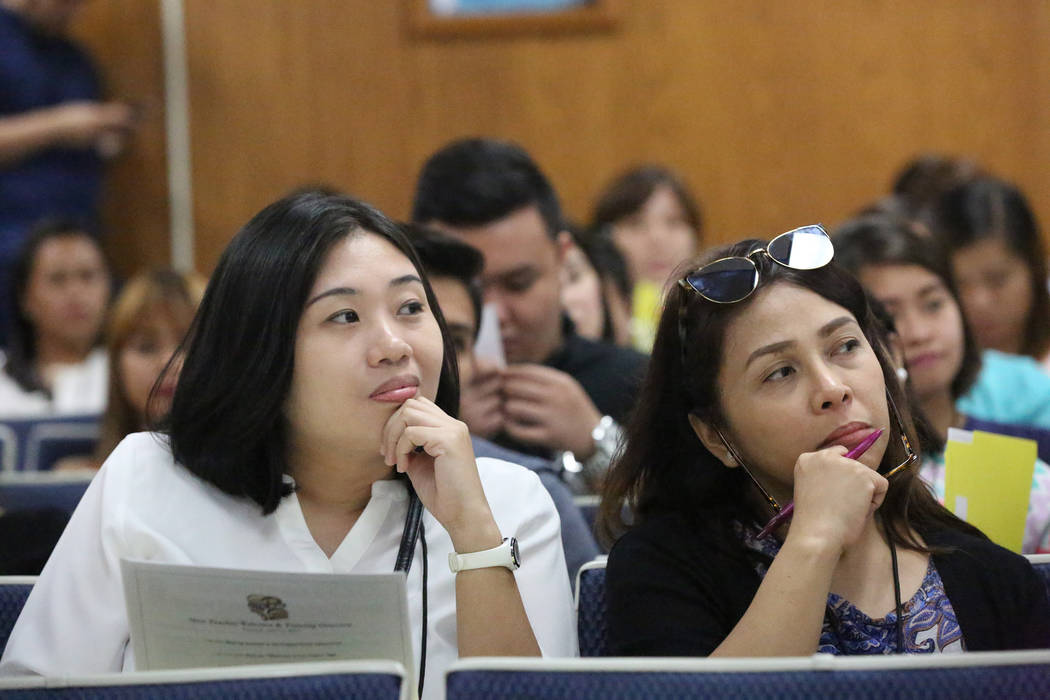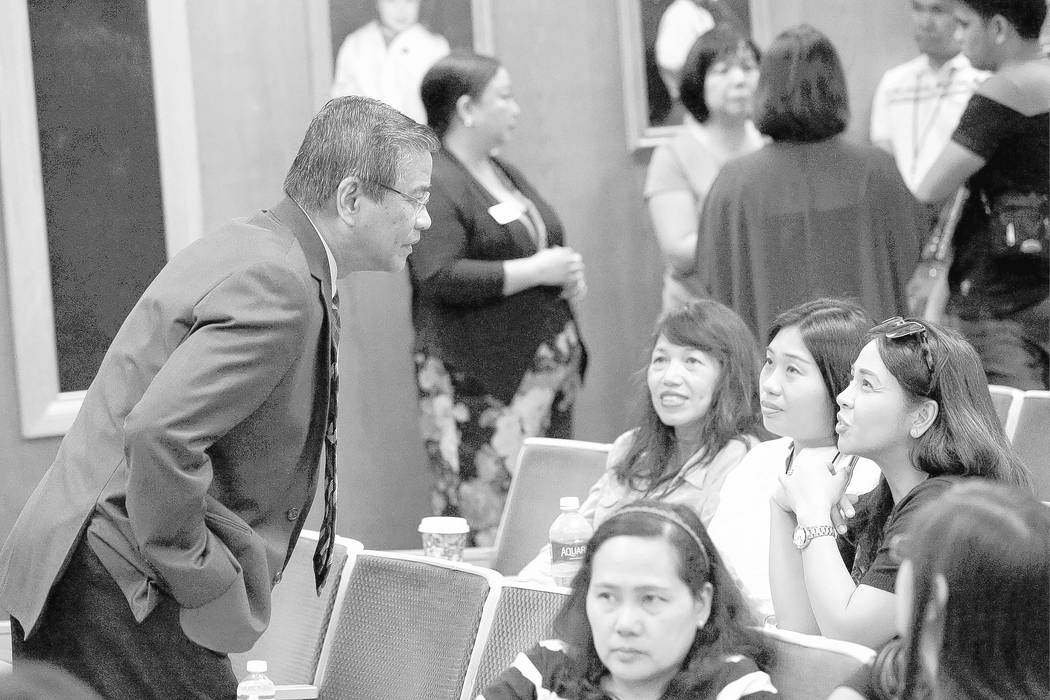Filipino teachers adjust to school district, life in Las Vegas
More than 80 special education teachers arrived from the Philippines in July after being recruited by the Clark County School District to help fill a teacher shortage.
A few of them teach in the southwest valley, including at Desert Oasis High School and Jydstrup and Steele elementary schools. They reflected on their time in the district and in Las Vegas so far, which they say has been educational, exciting and overwhelming at times.
Joey Vanguardia, 29, came from the Batangas province near the capital city of Manila. He has a master’s degree in education management and has eight years of teaching experience in general and special education.
Vanguardia said becoming a teacher was his third choice for a profession; his other choices were in nursing and computer science. He became a teacher, he said, because many Filipino universities offer generous scholarships (sometimes full tuition, which is what he received) for students to pursue teaching.
Vanguardia and his fellow Filipino teachers are working for the school district on J-1 visas, a nonimmigrant visa for work- and study-based travel. About 300,000 foreign travelers come to the U.S. each year on J-1 visas. In 2016, Nevada hosted 2,021 participants, according to the U.S. Department of State.
Pamela Gonzales, 30, a teacher at Jydstrup, has a bachelor’s degree in special education and said many people in her family are teachers. She remembers her grandfather telling her family how important education is and that “you’ll always have a job as a teacher.”
“I chose special education because these children have had a space in my heart,” Gonzales said. “The more they challenge me the more I love them.”
She has always wanted to teach in the U.S., Gonzales said, because she noticed all of her textbooks for school were published here. She wants to share what she learns here with the Philippines, she said.
Another teacher at Jydstrup, Johnny Rey Guan, 35, said being able to teach in the United States is a privilege.
“In our country… we did everything by ourselves,” Guan said. “If you wanted professional growth (training), we had to do it ourselves.”
In CCSD, Guan said, he has access to the LINKS Team, which provides services and support for students with autism; LINKS also offers parent training and professional development for teachers. The district also has behavioral interventionists and mentors for teachers like Guan.
“It’s great because as a new teacher in the United States, I understand you have a bit different educational system so it’s helped us a lot,” Guan said.
All of the teachers mentioned the pay is much better than in the Philippines, where teachers make between $5,000 and $7,000 annually. Clark County’s starting teacher salary is $40,000.
The desert heat was hard to get used to, they said, as well as all the rules and regulations of the district.
“The first two months I was staying here in Las Vegas … it was very overwhelming,” Vanguardia said. “There’s kind of a big difference in terms of comparing the educational system (and) the work we do in the Philippines and here in CCSD.”
Vanguardia said some of the differences include interaction with parents; he talks to the parents of his students much more here than he did in the Philippines. There’s more diversity in terms of ethnicity and language in his classroom here, and there are also more restrictions on touching and physically handling children here, too.
“I think that’s appropriate,” Vanguardia said.
Vanguardia’s class is smaller than he was used to. He has eight students, and the maximum he might teach is 12.
“In the Philippines, I think the least (amount of) students we handle is 20,” he said. In those classes, he could have students with different disabilities. Here, he is responsible only for students with autism who are in kindergarten through second grade.
Desert Oasis principal Kelly O’Rourke was one of the district administrators who traveled to the Philippines in April to interview 250 candidates. She made the hiring decision for one of her teachers, Elma Arquillano, 49, who has 28 years of teaching experience. It was difficult to narrow the candidates to 80, O’Rourke said.
“You have to put the compassion … aside and look at it from the perspective of: If this person walks into a classroom, are they going to be successful or are they going to fail?” she said.
That is especially important in special-education settings, where teachers are scarce, she said. Forty-two states reported a special education teacher shortage for the 2016-17 year.
“I know there are critics” of going to the Philippines for teachers, “but they’re not here (in the U.S.),” O’Rourke said. She said she’s sad because Arquillano and another Filipino teacher at Desert Oasis only have two-year visas.
“If I had my druthers (they) would stay here until the day I retired, but I know that’s not going to happen,” O’Rourke said. “But I know two years’ worth of kids are going to get good instruction, and we’re giving back. (They) are going to go back with more knowledge and make the Philippines stronger.”
O’Rourke said changes need to be made to encourage more teachers to enter special education, whether it’s by offering high wages or something else. Until that happens, she doesn’t see anything wrong with going to the Philippines.
“We have a lot of teachers there,” Arquillano said. “I hope you won’t get all of them.”
Contact Madelyn Reese at mreese@viewnews.com or 702-383-0497. Follow @MadelynGReese on Twitter.
Filipinos in the U.S.
Since 1990, the Philippines has been in the top five of originating countries for immigrants, according to the Migration Policy Institute.
There are about 108,000 Filipinos residing in the Las Vegas-Paradise metro, according to 2010 U.S. Census Bureau data. The Bureau estimated that in 2016 there were 3.9 million Filipinos living in the United States.



